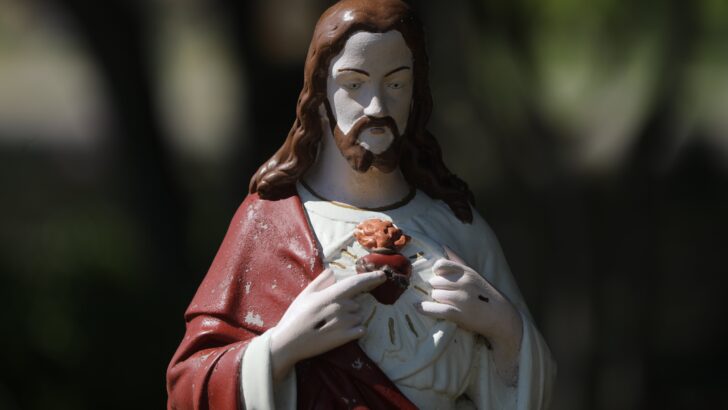Letter of the week
The extreme hatred of all things Catholic…
Dear Editor, Recently in the media was a story of a local elections candidate and her querying of Dublin City Council expenditure on a statue of the Sacred Heart at a city centre location. Hardly a huge hole in the council budget, the reason she gave for her concern was that it “might cause offence to Muslims”.
As a primary school teacher with decades of experience working in Catholic schools both here in Dublin and ‘beyond the Pale’, I can bear witness to the fact that never have I heard or come across any instance of a religious statue or picture being objected to by any Muslim parents or visitors to any school in which I or my colleagues have worked.
It is true however that Catholic iconography in schools under the management of the Catholic Church has come under attack from a small but vocal contingent of parents who have earned the moniker ‘ABC’ – Anything But Catholic.
The irrational and extreme hatred of all things Catholic has a long history in Ireland; right back to the 16th Century in fact, when a king of our neighbouring country sought to rid himself of his lawfully wedded wife when she failed to deliver a male heir. The ensuing debacle – as those who are familiar with the facts of history well know – resulted in the establishment of a state religion, imposed on the unfortunate subjects of this despot who went on to marry and execute several more women, most of whom also failed to deliver a male heir and found themselves surplus to requirements.
The infamous Penal Laws imposed on our ancestors meant that the Catholic Mass was outlawed, priests exiled or killed (often after being horribly tortured) and until 1829 when Daniel O’Connell’s Bill of Catholic Emancipation was successfully passed through parliament, no Catholic Church was allowed to exist and certainly no Catholic statues or pictures could be publicly displayed.
The political party to which the objector to the Sacred Heart statue belongs has no specifically anti-Catholic policies (that can be found on their website, at any rate) but another of their members as Mayor of Dublin tried to ban the annual Christmas crib at the Mansion House and another of her colleagues pursued a similar vendetta regarding another Catholic statue in the city of Dublin.
I call on her to desist and retract her objections.
One wonders at the political priorities of this party; on their holidays in Italy, Austria, Spain etc. do their members recoil from the sight of the many Catholic roadside shrines that are part of life in these Catholic countries?
Yours etc.,
Maria Ni Mhurchu
Phibsborough, Dublin 7
Overburdened priests and more parishioner responsibility
Dear Editor I can’t help wondering why Bishop Roche felt the need to ask for the laity to accept that overburdened priests need time off [The Irish Catholic – May 30, 2024]. My experience is that the laity care very much for their priests, worry about the increasing burden placed upon them, especially as the typical parish priest becomes more aged, and want to do whatever they can to ease the burden. I doubt that there are many parishioners who think that “there should be Mass in every church, every day”.
Could there, perhaps, be some correlation between how priests who feel particularly overburdened are those same priests who are most reluctant to let their parishioners take on more responsibility and insist on managing everything themselves?
Yours etc.,
Martin Harran
Castlefinn, Co. Donegal
Can you box someone in as ‘conservative Catholic’?
Dear Editor, How does a Catholic know whether he/she is a ‘conservative’ Catholic? A recent definition has characterised conservative Catholics as people whose hearts are “closed up inside a dogmatic box” and that conservatism in Catholicism is “a suicidal attitude”.
One recalls St Teresa of Calcutta’s maxim that the task of a Catholic is to “seek to be faithful” in pursuit of an ultimate, definite, happy destiny, a gift furnished by a God who wishes everyone to avail of it, and in the process come to know and integrate with reality in the life of the same God. As Jesus Christ and St Paul and St John the Apostle point out this integration derives from keeping the Commandments. The pursuit of faithfulness at work here is energised by engagement in prayer, good works, in the sacramental life of the Church and in acts of repentance.
There are Catholics who by choice pursue such cooperation with Church teaching. At the opposite end of the spectrum are those who dissent from same, for instance declining to accept the notion of truth in Catholic dogma. In pilgrim fashion personal behaviour can oscillate in various directions.
At which point on the spectrum is the designation ‘conservative Catholic’ meaningful? How can the truth of Catholic dogma, as truth, box someone in?
Yours etc.,
Neil Bray
Cappamore, Co. Limerick


 A statue depicting the Sacred Heart of Jesus. Photo: CNS/Bob Roller
A statue depicting the Sacred Heart of Jesus. Photo: CNS/Bob Roller 